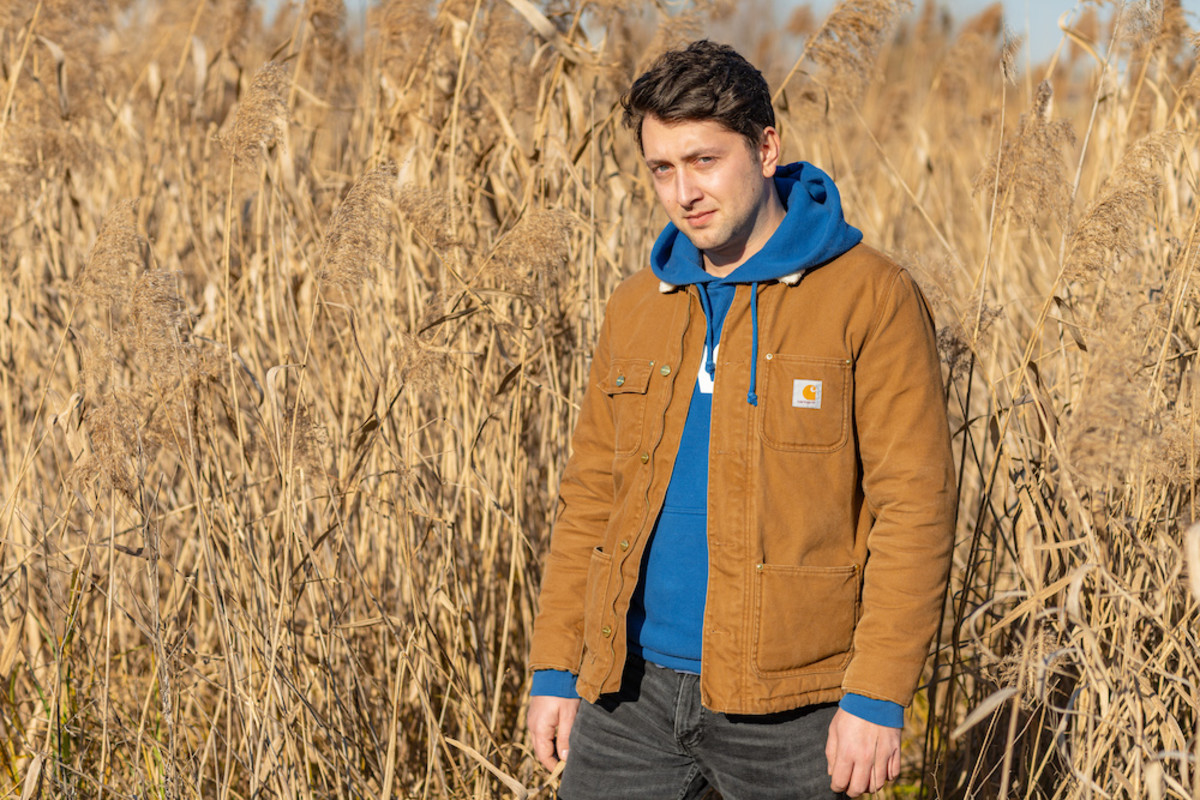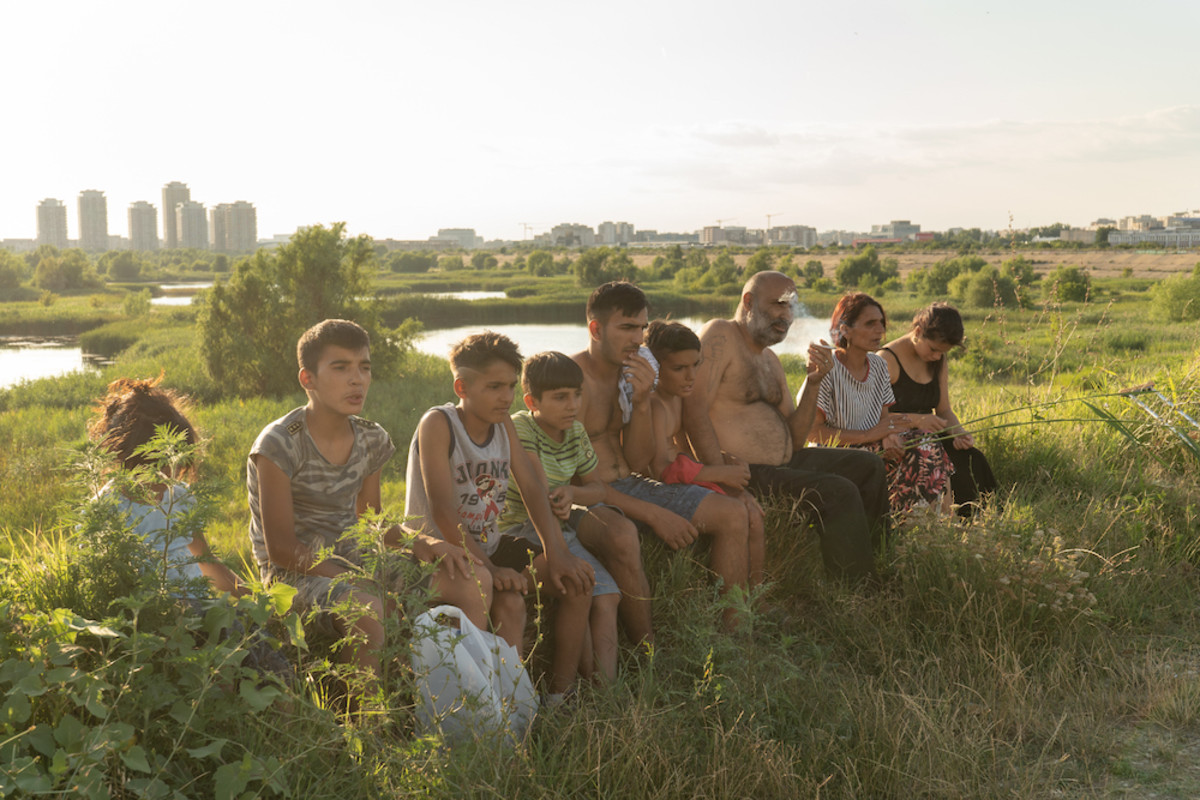Filmmaker Radu Ciorniciuc speaks candidly with Susan Kouguell about his debut feature film, “Acasa, My Home,” and how the importance of building empathy and trust with your subjects can advance the context of your story and provides insight into his writing process with co-writer Lina Vdovîi.
JAN 29, 2021

Radu Ciorniciuc’s debut feature film, Acasa, My Home, premiered at the 2020 Sundance Film Festival, where it was honored with a Special Jury Award for Cinematography. The film has played at over 60 festivals around the world and has been nominated for the IDA Documentary Awards, European Film Awards, and Cinema Eye Honors. The film opened in the U.S. on January 15th courtesy of Zeitgeist Films in association with Kino Lorber.
In the wilderness of the Bucharest Delta, an abandoned water reservoir just outside the bustling metropolis, the Enache family lived in perfect harmony with nature for two decades, sleeping in a hut on the lakeshore, catching fish barehanded, and following the rhythm of the seasons. When this area is transformed into a public national park, the nine children and their parents are forced to leave behind their unconventional life and move to the city. This is a compelling tale of an impoverished family living on the fringes of society in Romania, fighting for acceptance and their own version of freedom.
In 2012, Radu Ciorniciuc co-founded the first independent media organization in Romania – Casa Jurnalistului, a community of reporters specializing in in-depth, long-form and multimedia reporting. Since then, he has been working as a long-form writer and undercover investigative reporter. His research focuses on human rights, animal welfare and environmental issues across the globe. His investigative and reporting work was published on most of the major international media organizations in the world – Channel 4 News, The Guardian, Al Jazeera, etc. – and received national and international awards.
His journalistic work was acknowledged by Royal Television Society UK (2014), Amnesty International UK (2014), Harold Wincott Awards for Business, Economic and Financial Journalism (2016), and by other international and national prestigious institutions.
Lina Vdovîi (co-writer) is an award-winning independent long-form reporter covering migration, conflict zones, poverty, education, and social integration. In 2012, she joined the Romanian Centre for Investigative Journalism and, in 2014, became a fellow in the Balkan Fellowship for Journalistic Excellence. In 2014, she was awarded 1st place in the Feature Writing category at Premiile Superscrieri. In 2015, Lina received the distinction Young Journalist of the Year, awarded by Freedom House, Romania. Her work is published in both national outlets and international publications, such as in The Guardian, the EU Observer, Courrier International, Al-Jazeera, Transitions online, RFE/RL, Berlin Policy Journal, and Balkan Insight.

Susan Kouguell: How did you initially meet the Enache family?
Radu Ciorniciuc: It was in 2016 when we heard the Romanian government was going to give the highest environmental protection to a place that was known for the garbage that was stored there, and all the bad urban legends like people get killed in this delta. It was quite a story for me living just two streets away from there.
At first, I just wanted to report on how these authorities were going to make these places accessible to the general public. What they discovered inside was something amazing and truly valuable; a delicate and complex ecosystem where hundreds of species of birds and animals and plants found their home despite it being in one of the most polluted capitals in Europe.
For me, as a reporter, it was quite interesting. With the co-screenwriter of the film, Lina Vdovîi, we started doing interviews and one thing led to another. We met two of the boys, half-naked 400 meters from the city center with their long hair and their funny way of speaking, coming out from the bush. It was quite an image and obviously, we wanted to understand where they came from. They took us to their father, and this is where we learned that the father was quite essential to the whole project and campaign of making this is a nature park. He was working closely with all the researchers, scientists, and other journalists who would come to write or promote the place. He knew everything about the place, he was also acting as a ranger with all the poachers that would come.
We had the privilege on our first encounter to have him see us as another crew of journalists and he took us on this very well-scripted tour of his, explaining the main things of the ecosystem, acting as a modern-day Robinson Crusoe – he was very well aware of his character. Weeks passed and we kept coming back and the father asked: ‘What kind of journalists are you guys? When are you finishing your story?’ We said what’s happening here deserves more time to properly understand the context in which they were living.
Kouguell: You mentioned that in order to create a feeling of familiarity and home with the family, the camera was always shooting at the eye level of the characters and at close distances, especially when highly emotional events were taking place. How were you able to gain the family’s trust?
Ciorniciuc: This trust you build with time. It’s something that is evolving and shifting. As long as there is empathy, understanding and fairness– and this goes with every relationship– I think there are strong bridges to be built.
Kouguell: You co-wrote the film with Lina Vdovîi – please tell me about the writing process.
Ciorniciuc: We both come from a writing background; we both started working in long format, as nonfiction writers. For me it was essential in making this film to always have what I call the bible of the film, which is the treatment, the script. It was very important at different stages of the project so everyone on the project, including myself, knows what’s going on, knows the material we can show, and also clarifies our intention.
Obviously, there are many ways of making a film. Documentary has shifted in form over the years, which is a beautiful thing. There is nothing scripted in the film; I or my crew, never fed them lines.
The truth can have a lot of forms; there is the journalistic truth, artistic truth, and human truth and that can be attained with different forms.
The way we tried to direct some of the scenes, for example, the conflict scenes with the family was that we did our best in becoming mediators between the family members. We were already the people they were turning to when they were having hard times. For example, with the scene with Vali and his father, they had been struggling with each other for about three months and never talked with each other. That was understandable; I come from a patriarchal family and culture and I understand that embracing your vulnerabilities and communicating them can be seen as a sign of weakness. One day I sat with them and said, “I probably won’t be here (with you) in 10 or 20 years and you probably will, and to solve some of these issues you need to talk.” They only needed this to start expressing their frustrations that were there for years.
The way we scripted it was to imagine drawing a red line through 300 hours of footage, which is something that we had with many possibilities of telling the story, including finding an abandoned son of Gica, that exploded our story. We were two years in the making of the film when we followed that storyline. It’s great when you’re making independent documentaries because you have the liberty of following whatever you feel is important.
[Writing a Documentary Film With No Rules]
Writing helps me understand where the end of the film will be. When the written treatment was matching what we had in our rough cuts, that’s when I knew this is what we wanted to say, the things we discovered, what we considered valuable and truthful and worth sharing with the world. This is why I believe in the written process even in the conventional documentary.
Kouguell: You captured people’s intentions yet remained nonjudgmental in conveying the material even when we see how various people are not making the best choices.
Ciorniciuc: You’re a filmmaker and you know that learning the nuance to judgment takes time and education. It’s hard not to judge some of the decisions the father made regarding the children, but understanding that those decisions come from a place that made him feel confident, that the things he was doing were for the best of his loved ones, that for me is context. It took me time to give him a break, and it took me time to accept the fact that those children were deprived of a lot of the opportunities that they should have 400 meters away from them. One judges things on how culture influences you or your family, education, community, and so on.
I think in telling a story like this one it was important for the characters to tell their story, tell their reality in how they see it. I wanted to make a film from within the family rather than about the family. This was obviously tricky because many times we had to fight with our perceptions and our own judgments.
Kouguell: It was powerful to see the footage of Charles, Prince of Wales in your film. It wasn’t just about the celebrity factor, but it put it in the context of how important this land was. How were you able to obtain the footage?
Ciorniciuc: We got it from the official news agency in Romania. We got lucky; if we actually asked the Royal House of Windsor, we would never have gotten it. It mattered to them that our core team were journalists, including myself, and we were known to them and they trusted us.
Kouguell: Has the Enache family seen the film?
Ciorniciuc: Yes. Some parts they enjoyed and some parts they were reminded of the many hard situations they have been through in the last four years. I think it had a very therapeutic effect especially on the mother who told me that after all this they are still together, she can still feel that she has a family, which is something I am very proud of. I was very nervous showing the film to the family but at the end of the day, it worked very well for the family.
Susan Kouguell, award-winning screenwriter and filmmaker, is a senior contributing editor for Script Magazine, and is the author of The Savvy Screenwriter: How to Sell Your Screenplay (and Yourself) Without Selling Out! and Savvy Characters Sell Screenplays!: A comprehensive guide to crafting winning characters with film analyses and screenwriting exercises. As chairperson of Su-City Pictures East, LLC, a motion picture consulting company founded in 1990, Kouguell works as a script doctor and post-production consultant with over 1,000 writers, filmmakers, executives and studios worldwide. Her extensive background includes work as story analyst and story editor for many studios, including Miramax, Paramount, and Viacom, acquisitions consultant for Warner Bros., writer on voice-over narrations for Miramax, associate producer on two features, and over a dozen feature writing assignments for independent companies. Susan teaches screenwriting at SUNY College at Purchase and is a visiting assistant professor at Pratt Institute. Her short films are in the Museum of Modern Art’s permanent collection and archives and were included in the Whitney Museum’s Biennial. Follow Susan on Twitter: @SKouguell, Facebook, and Instagram @slkfilms